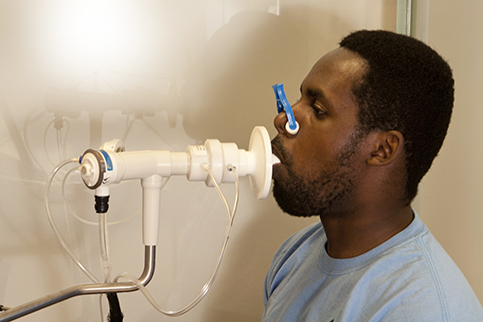Public Health
The Airborne Hazards Center of Excellence – Offering specialty health exams and conducting reaserch


The Airborne Hazards Center of Excellence (AHCE) provides comprehensive, multi-disciplinary, specialty medical evaluations for Veterans who have health concerns about airborne hazards exposures and are seeking expertise that may not be available at their local VA medical center. In addition to clinical evaluations, the AHCE also conducts research studies to evaluate novel assessments of cardiopulmonary function, along with tests on non-pulmonary systems, to learn about vascular and cellular function in deployed Veterans. The AHCE is located at the War Related Illness and Injury Study Center (WRIISC) in East Orange, New Jersey.
To get a specialty medical evaluation at the AHCE, Veterans need to ask their VA provider for a referral. As a part of this evaluation, Veterans receive an extensive environmental exposure assessment and a thorough examination from a pulmonologist who specializes in airborne hazards. The evaluation may also include state-of-the-art assessments of lung function and exercise capacity. All of the findings, along with a Veteran’s past medical history, are used to develop recommendations focused on improving quality of life and symptom management. Any recommendations are shared with a Veteran and their referring provider for follow-up care.
Researchers at the AHCE also look at findings from these specialty medical evaluations to help them develop research questions to investigate. For example, AHCE researchers are currently evaluating new, non-invasive ways to assess small airway mechanics and gas-exchange at rest and during exercise. They hope that these research findings will ultimately be used to improve clinical practice.
Learn more about the AHCE enhanced evaluation for airborne hazard concerns, including how to get a referral, and about WRIISC research and education efforts at www.warrelatedillness.va.gov.




















